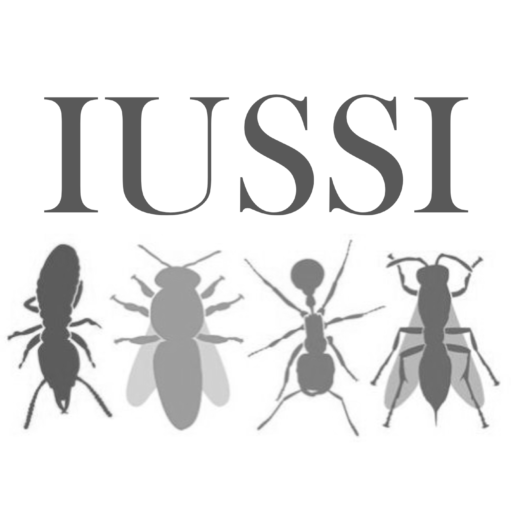To apply: https://apply.interfolio.com/159179
Postdoctoral Research Scholar: Function and Evolution of Insect Societies
Location
Tempe Campus, Arizona State University
Open Date
Nov 14, 2024
Description
We are seeking an excellent recent Ph.D. for a postdoctoral position focused on the function and evolution of insect societies. Multiple models of southwestern species are possible, but harvester ants and honey bees are particularly available and interesting. The successful candidate will develop a research program in collaboration with the Fewell and Harrison labs. Potential research topics include those focused on how social cooperation and coordination emerges within groups, including models of behavioral coordination, how social groups respond to environmental change, and/or physiological and genomic approaches to these questions. Ongoing projects in Fewell/Harrison labs include studies of the scaling of work and colony organization with colony size, the role of body and brain size and metabolism on individual capabilities, thermal effects on social insect function, the genomic bases to social cooperation, and models of social coordination and network function. While the core of the lab is focused on behavioral methods, research will provide opportunities for collaborations across a strong Social Insect Research Group, with techniques ranging from molecular genetics, biochemistry, physiology, population biology, and mathematical modeling. Target start date is Feb. 1, 2025, but this is negotiable.
The Social Insect Research Group (SIRG) at ASU is one of the world’s leading centers for the study of social insects (https://sols.asu.edu/research/sirg), with outstanding physical and intellectual resources including excellent facilities for insect rearing, an apiary, a wide array of shared equipment optimized for measurement of phenotypic properties of social insects, and world-class genomic and systematic resources. SIRG is highly interactive, has a weekly seminar series in collaboration with other insect researchers on campus, and has had excellent success placing postdocs into careers of their choice.
Essential duties
- With the PI’s, develop and carry out experiments of mutual interest
- Collaborate with others on data analysis, modeling projects, and writing scientific papers associated with the research.
- With the PI’s, manage the lab, including oversight and aid in mentoring of graduate and undergraduate students.
- Travel to meetings to present results.
- Be an active member in research group activities (e.g., participate in lab meetings, mentor students).
About The College of Liberal Arts and Sciences
The College of Liberal Arts and Sciences is the academic heart of Arizona State University, committed to improving communities on a local, national and global scale. We support the professional development and growth of our faculty and staff in their cutting-edge research to advance these aims. Within The College, our faculty engage with a large and curious student body, guiding them as they grow into socially aware, critical thinkers and writers able to succeed in a wide range of careers and to address the challenges of the twenty-first century. Advancing the success of our students remains our top priority. To learn more about The College of Liberal Arts and Sciences, please visit https://thecollege.asu.edu.
About Arizona State University
ASU exemplifies a new prototype for the American public research university. As articulated in the ASU Charter, ASU is a comprehensive public research university, measured not by whom it excludes, but by whom it includes and how they succeed; advancing research and discovery of public value; and assuming fundamental responsibility for the economic, social, cultural and overall health of the communities it serves.
Qualifications
Required Qualifications:
- An earned doctorate at time of appointment, with research focus in a field broadly relevant to social insect organization, function, and/or evolution
- A record of research success, as evidenced by publication in academic journals and/or funding success
Desired Qualifications:
- Demonstrated ability to conduct behavioral, genomic, and/or physiological experiments with social insects.
- A research background in the behavioral ecology, physiology, genomics, and/or evolution of ants or honey bees
- A strong publication record in scientific fields related to this project
- A strong history of scientific presentations at academic meetings
- Demonstrated skills with molecular, biochemical, physiological, or modeling techniques, preferably with social insects
- Excellent knowledge of and skills in statistical analyses and/or in modeling
- Demonstrated capacity to work well in interdisciplinary teams
- Demonstrated commitment to working with faculty, staff, students and communities to advance the principles of the ASU Charter
Application Instructions
The application deadline is Jan. 1, 2025. Applications will continue to be accepted on a rolling basis for a reserve pool. Applications in the reserve pool may then be reviewed in the order in which they were received until the position is filled. Candidates will be asked to create or use an existing Interfolio Dossier to submit the following application materials:
- Cover letter and description of research interests. Applicants should describe their experience and suitability for the position. This proposal should highlight the strengths of the applicant’s experience towards implementing the proposed research, and describe how this position will help the professional development of the candidate.
- Curriculum vitae or resume.
- Contact information (name, email and phone) for two or three references.
